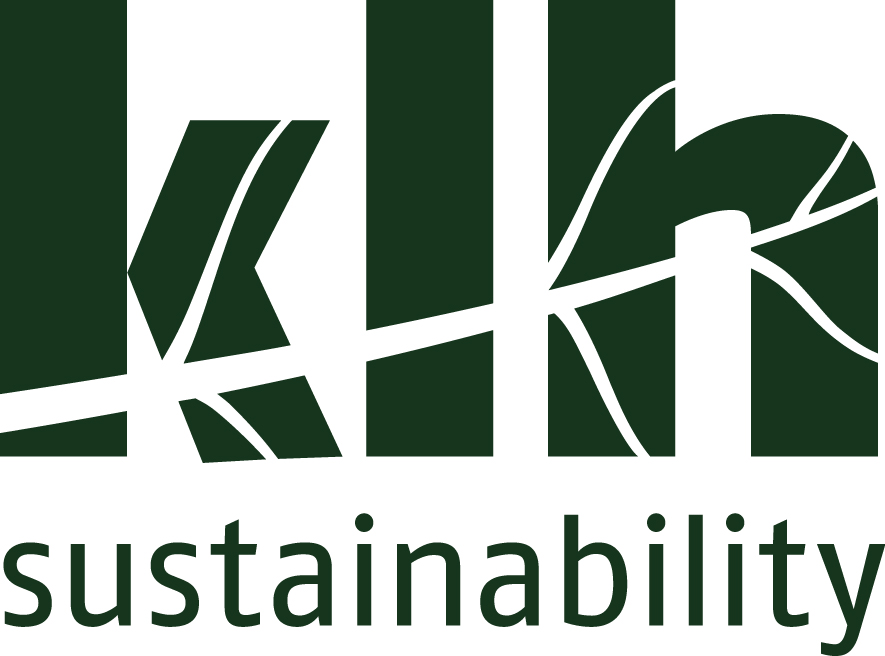

KLH Sustainability Ltd

London Borough of Hackney, United Kingdom
June 2022
Environmental consulting
Service with Minor Environmental Footprint
United Kingdom
At KLH, our mission is to accelerate change by making sustainability accessible to all. KLH Sustainability was founded in 2010 by Director, Kirsten Henson. We are a dynamic group of people who share the same passion. Our diversity comes from the range of nationalities, sex, and hair colour of our small team. Our team combines engineers, architects and social scientists, all of whom hold masters degrees in the sustainability field. So, we know the theory of sustainability inside out, but what makes us a little different from other consultants is that we combine this theoretical knowledge with construction site experience. We punch above our weight in terms of the scale of projects and the type of clients we work with; 1500 zero carbon homes on the Queen Elizabeth Olympic Park, research and strategy work with The Crown Estate and The Red Sea Project in Saudi Arabia which is a masterplan the size of Belgium. We get involved in everything from setting strategy and research, capacity building with architects and engineers, delivering on site sustainability with contractors, strategic master planning advice, planning documentation, technical analysis, sustainability reporting. The range of projects and clients gives us a unique insight into the build environment.
Overall B Impact Score
Governance 15.3
Governance evaluates a company's overall mission, engagement around its social/environmental impact, ethics, and transparency. This section also evaluates the ability of a company to protect their mission and formally consider stakeholders in decision making through their corporate structure (e.g. benefit corporation) or corporate governing documents.
What is this? A company with an Impact Business Model is intentionally designed to create a specific positive outcome for one of its stakeholders - such as workers, community, environment, or customers.
Workers 30.4
Workers evaluates a company’s contributions to its employees’ financial security, health & safety, wellness, career development, and engagement & satisfaction. In addition, this section recognizes business models designed to benefit workers, such as companies that are at least 40% owned by non-executive employees and those that have workforce development programs to support individuals with barriers to employment.
Community 21.3
Community evaluates a company’s engagement with and impact on the communities in which it operates, hires from, and sources from. Topics include diversity, equity & inclusion, economic impact, civic engagement, charitable giving, and supply chain management. In addition, this section recognizes business models that are designed to address specific community-oriented problems, such as poverty alleviation through fair trade sourcing or distribution via microenterprises, producer cooperative models, locally focused economic development, and formal charitable giving commitments.
Environment 9.4
Environment evaluates a company’s overall environmental management practices as well as its impact on the air, climate, water, land, and biodiversity. This includes the direct impact of a company’s operations and, when applicable its supply chain and distribution channels. This section also recognizes companies with environmentally innovative production processes and those that sell products or services that have a positive environmental impact. Some examples might include products and services that create renewable energy, reduce consumption or waste, conserve land or wildlife, provide less toxic alternatives to the market, or educate people about environmental problems.
Customers 21.6
Customers evaluates a company’s stewardship of its customers through the quality of its products and services, ethical marketing, data privacy and security, and feedback channels. In addition, this section recognizes products or services that are designed to address a particular social problem for or through its customers, such as health or educational products, arts & media products, serving underserved customers/clients, and services that improve the social impact of other businesses or organizations.
What is this? A company with an Impact Business Model is intentionally designed to create a specific positive outcome for one of its stakeholders - such as workers, community, environment, or customers.